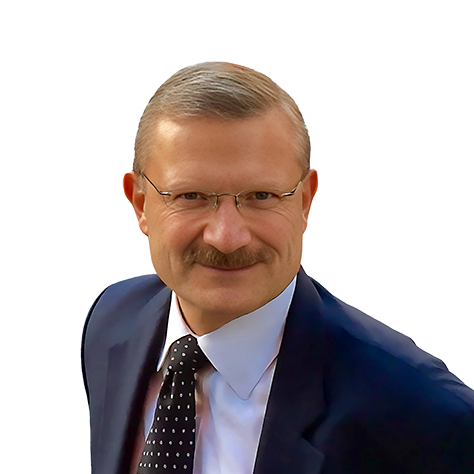John, a 38-year-old marketing executive, was driving to work on a crisp autumn morning when his life changed in an instant. A distracted driver failed to notice the red light and rear-ended John’s car at high speed, causing a significant impact. Although John was wearing his seatbelt, the force of the collision caused his head to violently jerk back and forth, resulting in whiplash.
In the days that followed, John experienced persistent neck and low back pain, stiffness, and limited mobility. He sought medical attention and was diagnosed with facet injuries in both his cervical and lumbar spine, caused by the excessive force applied to his spine during the accident.
John’s road to recovery was long and arduous. He initially tried conservative treatment options, such as rest, ice, heat, pain medications, and physical therapy. While these measures provided some relief, they were insufficient to fully address his lingering pain and discomfort.
Determined to find a solution, John sought the expertise of a renowned spinal specialist, Dr.Dariusz Nasiek, MD. Dr. Nasiek listened intently to John’s concerns and thoroughly assessed his condition. As part of the diagnostic process, Dr. Nasiek administered a lumbar medial branch nerve block. This injection not only provided temporary pain relief for John but also confirmed the diagnosis of facet arthropathy in his lumbar region.
With a clear understanding of John’s condition, Dr. Nasiek outlined an innovative, non-surgical treatment plan tailored to John’s specific needs. Over the next few months, John received a series of medial branch nerve blocks, which targeted the nerves responsible for transmitting pain signals from his affected lumbar facet joints. These injections offered significant pain relief and improved John’s functional capacity, allowing him to return to work and participate in activities he once enjoyed.
Despite the success of the medial branch nerve blocks, John’s pain began to resurface over time, prompting Dr. Nasiek to consider the next step in his treatment plan: radiofrequency ablation. This minimally invasive technique utilized heat generated by radio waves to disrupt pain signal transmission from the targeted nerves.
John underwent the radiofrequency ablation procedure with cautious optimism. To his delight, the treatment provided long-lasting pain relief, reduced his reliance on pain medications, and improved his functional outcomes. John’s quality of life significantly improved, and he enthusiastically resumed his exercise routine and social activities.
However, John’s journey was not yet complete. As the months passed, he began to experience recurring episodes of low back pain, indicating that further intervention was necessary. Dr. Nasiek recommended a groundbreaking, minimally invasive procedure called endoscopic lumbar facet ablation.
With unwavering determination, John agreed to the procedure, knowing it could be the final step in his journey to recovery. Endoscopic lumbar facet ablation offered several advantages over traditional open spine surgery, including less tissue damage, reduced postoperative pain, and faster recovery times.
The day of the procedure arrived, and John was filled with a mix of nervous anticipation and hope. Under the skilled hands of Dr. Nasiek, the endoscopic lumbar facet ablation was a success. John experienced immediate pain relief, and his recovery was rapid, surpassing even his most optimistic expectations.
In the weeks that followed, John diligently attended physical therapy sessions to rebuild his strength and restore his mobility. His dedication and hard work paid off, as he was soon able to engage in his favorite activities without pain or limitations.
John’s story is a testament to the power of resilience and the success of non-surgical treatment options for facet injuries. His journey to recovery, while long and challenging, ultimately led him to reclaim his life and embrace a pain-free future. As awareness of whiplash-related facet injuries and their consequences grows, John’s experience serves as an inspiring example for others facing similar challenges.
Through his unwavering determination and trust in innovative, non-surgical treatments, John was able to overcome the pain and limitations imposed by his facet injuries. His story emphasizes the importance of exploring all available treatment options, particularly those that allow patients to avoid surgical intervention and the potential complications associated with it.
As John moved forward with his life, he became an advocate for raising awareness about facet injuries and the benefits of non-surgical treatments like medial branch nerve blocks, radiofrequency ablation, and endoscopic lumbar facet ablation. He shared his story with friends, family, and support groups, offering hope and encouragement to others dealing with chronic pain from whiplash-related injuries.
John’s experience serves as a powerful reminder that recovery is possible, even in the face of persistent pain and disability. By embracing cutting-edge treatments and maintaining a positive outlook, he was able to reclaim his life and inspire others to do the same. His journey stands as a testament to the power of perseverance and the transformative potential of non-surgical treatment options for those suffering from facet injuries.
John’s life returned to normalcy, and he was grateful for the expertise of Dr. Nasiek and the innovative treatment options that had facilitated his recovery. He continued to share his story, spreading hope and raising awareness about the potential for successful, non-surgical treatments in cases of resistant whiplash injury pain.
The lessons learned from John’s journey are invaluable. For patients and healthcare professionals alike, it is crucial to recognize the importance of exploring all avenues of treatment, particularly when faced with resistant pain from facet injuries. By working together, patients and healthcare providers can achieve remarkable outcomes, improving the lives of those affected and offering hope for a brighter, pain-free future.


